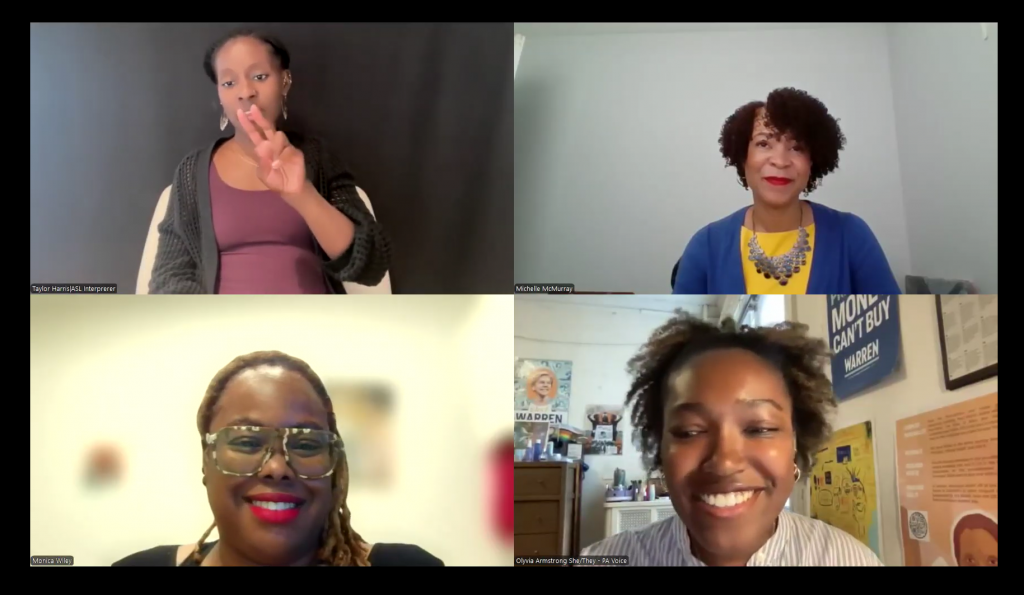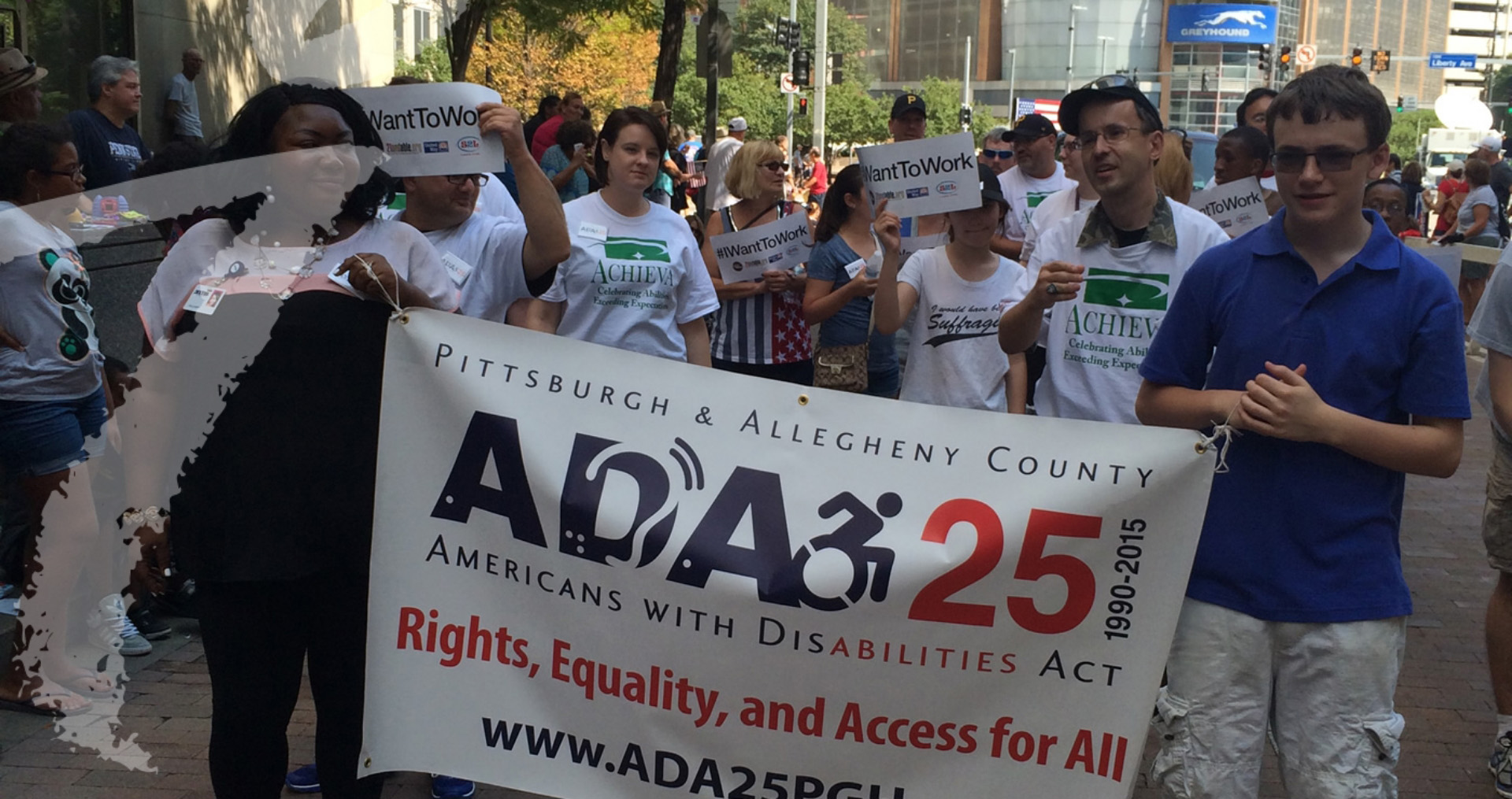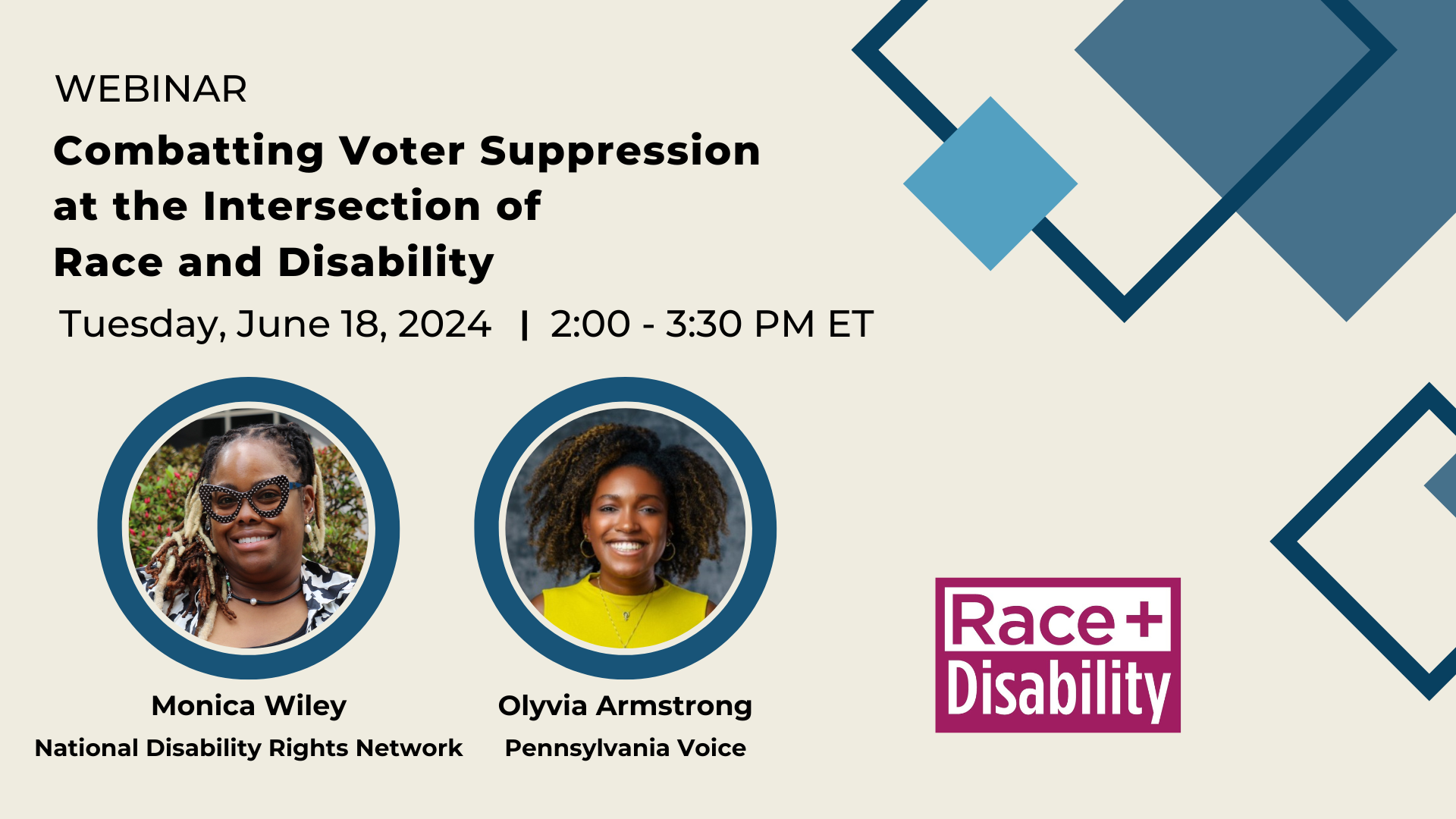On June 18th, 2024, FISA Foundation, The Heinz Endowments, and The Pittsburgh Foundation hosted a webinar titled “Combatting Voter Suppression at the Intersection of Race and Disability” as part of the RACE + DISABILITY initiative. The webinar focused on the work being done locally and nationally to support greater access to the ballot box for people of color and people with disabilities, and the work that still needs to continue.
The webinar featured two guest speakers: Olyvia Armstrong and Monica Wiley. Olyvia Armstrong serves as the Voting Access Campaign Manager at Pennsylvania Voice, an organization working with partners across the state to build an inclusive, just and reflective democracy in Pennsylvania. Monica is the Voter Engagement Specialist and Access Manager at National Disability Rights Network (NDRN), creating non-partisan campaign messaging that directly engages people with disabilities and increases voter participation. The conversation was moderated by Michelle McMurray, Vice President of Program and Community Engagement at The Pittsburgh Foundation.
“You don’t have to be in a civic engagement group to promote this work. This doesn’t [just] exist around elections. You should be talking about this year-round. You all are your most trusted community members. You build relationships with people in your community. People trust you and your messages. That holds power.”
Olyiva Armstrong, Pennsylvania Voice
Linking Historical Voter Suppression Tactics to Current Barriers
Monica gave a thorough overview of the history of voter suppression tactics used to prevent Black folks from voting, such as literacy tests and the grandfather clause. Monica connected these tactics to current voter suppression efforts, such as voter ID laws, that disproportionately impact communities of color and people with disabilities. Olyvia also chimed in on efforts that prevent Black communities and other communities of color from voting, such as limits on absentee voting.
They mentioned how lack of enforcement around ensuring accessibility at polling places prevents people with disabilities from having what they need to vote. Both Olyvia and Monica mentioned the need for poll workers to be knowledgeable about the rights of voters with disabilities, making sure they are aware of best practices so they can provide assistance to people with disabilities and support their right to vote.
Legislation Needed to Increase Access to the Ballot Box
Olyvia mentioned the need for same-day and early voting so more people can cast a ballot, and she talked about legislation that is in progress to bring this to fruition in Pennsylvania. Monica advocated for curbside voting to increase accessibility for people with disabilities and discussed legislation on this issue.

The Role of Nonprofits in Civic Engagement Work
Olyvia and Monica both shared encouraging words about the role nonprofits have in fostering civic engagement, no matter the organizational mission. Olyvia discussed the power of nonprofits as trusted messengers in the communities they serve, underscoring the importance of talking about civic engagement issues year-round to activate voters. Monica built on this point, sharing how strong, trusting relationships are the foundation for keeping communities civically engaged.
We are grateful to have had Olyvia and Monica share their insights on protecting voting rights and increasing civic engagement in the communities we serve. You can view the full recording of the webinar here. Stay tuned for the next Race and Disability webinar in Fall 2024!
“We as human beings have a moral and civic obligation to make sure that everyone has the right and has the ability to vote. Voting is one of the most powerful ways of exercising your voice. Your voice matters. You do not have to be necessarily an expert in order to form a coalition or a group of individuals to make things happen.”
Monica Wiley, National Disabilty Rights Network (NDRN)


